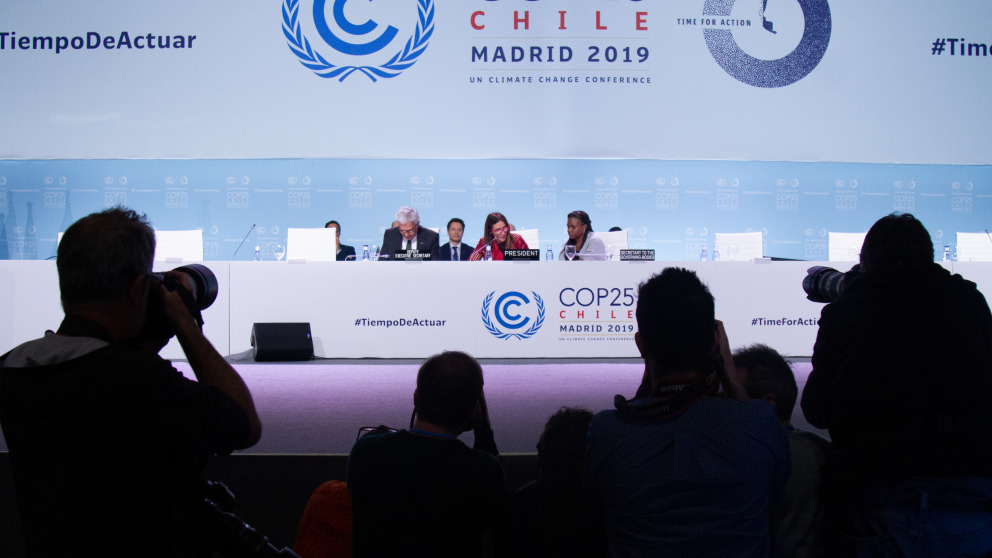Fostering a New Communication Culture at the UN Climate Change Conferences
05.10.2021
The communication culture at the UN Climate Change conferences relies heavily on conventional presentation and panel formats that are not conducive to mutual engagement and learning. In a new IASS Policy Brief, researchers make recommendations to reinvigorate the COPs through new formats of dialogue that can better foster collaboration and co-creation of climate change solutions.

At their core, the UN Climate Change conferences, known as “COPs,” are the primary international venue for negotiating how countries should act and cooperate to avoid dangerous climate change. The 2015 Paris Agreement is its most recent notable success. Although the climate negotiations are a state government-led process, the United Nations Framework Convention on Climate Change (UNFCCC) community has increasingly recognized the need for dialogue and engagement with non-governmental stakeholders in acknowledgement of the critical role they will play in mobilizing and implementing climate change solutions. Non-governmental stakeholders include the scientific community, civil society, the private sector, and local communities.
Such non-governmental stakeholders also attend the COP in large numbers, where they aspire to influence the negotiations, make their voices heard, and generally contribute to advancing climate action. But the prevailing communication culture is not conducive to mutual engagement and learning. Against this backdrop, IASS researchers make three recommendations to foster reflection, dialogue, and collaboration among diverse actors at the UN Climate Change conferences, focusing on the interactions that take place outside the formal negotiations. These recommendations are intended to be actionable by different types of meeting hosts at the COP, including observers, Party delegates, the UNFCCC Secretariat, and the COP presidency.
Recommendation 1: Create an enabling environment.
The setting of a meeting – both the physical surroundings and the collective mindset – sets an important tone. The authors therefore suggest fostering inclusive and participatory dialogue by limiting hierarchical setups like stages and establishing communicative ground rules that emphasize respect and mutual support.
Recommendation 2: Use facilitation practices that support reflection, interconnection, and action-orientation.
A wide range of facilitation tools can be used to support the intentional design of a meeting. Fostering reflection, inter-connection, and action-orientation can help a meeting go beyond exchange and allow for deeper insights and meaningful collaboration.
Recommendation 3: Develop networks for systemic change in the culture of collaboration at the COPs.
Individual actors engaged in new forms of collaboration and dialogue should form networks and communities of practice to support each other as well as a greater transformation in the culture of collaboration at the COPs and within the wider climate community.
Mar, K.A., Fraude, C., Bruhn, T. Schäpke, N. Stasiak, D., Schroeder, H. Wamsler, C., Lawrence, M.: Fostering Reflection, Dialogue and Collaboration among Actors at the UN Climate Change Conferences, IASS Policy Brief (October 2021), Potsdam, DOI: 10.48481/iass.2021.028

